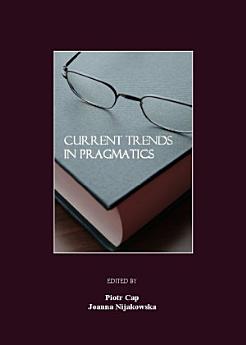Current Trends in Pragmatics
Piotr Cap · Joanna Nijakowska
মার্চ ২০০৯ · Cambridge Scholars Publishing
৫.০star
১টি রিভিউreport
ই-বুক
430
পৃষ্ঠা
family_home
উপযুক্ত
info
reportরেটিং ও রিভিউ যাচাই করা হয়নি আরও জানুন
এই ই-বুকের বিষয়ে
The volume brings together twenty articles written by established linguists, language philosophers, sociologists and psychologists, sharing their academic interest in a broad and interdisciplinary field of linguistic pragmatics. The collection consists of four thematic parts: “Pragmatics and Cognition,” “The Semantics-Pragmatics Interface,” “Conversational and Text Analysis” and “Pragmatics, Social Research and Didactics.” It aims to contribute to the debate on the present-day status of pragmatics, by examining three fundamental issues. The first involves the question of the current explanatory power of pragmatics, namely, how successful is the existing apparatus of pragmatics and the basic-level parameters (theories of speech acts, relevance, implicature, presupposition, deixis, politeness, etc.) in the elucidation of various aspects of meaning. The second issue involves the methodological assistance that pragmatics might need in order to enhance its explanatory power. The third has to do with the fuzzily defined boundaries of the discipline of pragmatics and the resulting temptation for analysts to concentrate solely on its fragmented sub-domains. As the collection unfolds, these issues form a continuum which, it seems, is often a process that a linguist goes through as his or her methodological awareness deepens. Thus, the orientation of the volume towards the analyst and the analytic mind-set, as well as the attempted balance in presentation of the alternative approaches, seem the major theoretical characteristic of the book.
রেটিং ও পর্যালোচনাগুলি
৫.০
১টি রিভিউ
লেখক সম্পর্কে
Piotr Cap is Associate Professor and Head of the Department of Pragmatics at the University of Łódź, Poland. He has been research fellow at UC Berkeley, Birmingham University, the University of Munich and Boston University. His interests are in pragmatics, political discourse and methodology of linguistics. His book publications include Explorations in Political Discourse (Lang, 2002), Pragmatics Today (Lang, 2005) and Legitimization in Political Discourse (CSP, 2006). He is editor of the international journal Lodz Papers in Pragmatics (LPP).
Joanna Nijakowska is Assistant Professor in the Department of Psycholinguistics and Language Didactics at the University of Łódź, Poland. She specializes in the psychological, neurolinguistic and pragmatic aspects of language comprehension and processing. She has lectured at several European academic centers, including the University of Tampere, the University of York and Manchester University.
ই-বুকে রেটিং দিন
আপনার মতামত জানান।
পঠন তথ্য
স্মার্টফোন এবং ট্যাবলেট
Android এবং iPad/iPhone এর জন্য Google Play বই অ্যাপ ইনস্টল করুন। এটি আপনার অ্যাকাউন্টের সাথে অটোমেটিক সিঙ্ক হয় ও আপনি অনলাইন বা অফলাইন যাই থাকুন না কেন আপনাকে পড়তে দেয়।
ল্যাপটপ ও কম্পিউটার
Google Play থেকে কেনা অডিওবুক আপনি কম্পিউটারের ওয়েব ব্রাউজারে শুনতে পারেন।
eReader এবং অন্যান্য ডিভাইস
Kobo eReaders-এর মতো e-ink ডিভাইসে পড়তে, আপনাকে একটি ফাইল ডাউনলোড ও আপনার ডিভাইসে ট্রান্সফার করতে হবে। ব্যবহারকারীর উদ্দেশ্যে তৈরি সহায়তা কেন্দ্রতে দেওয়া নির্দেশাবলী অনুসরণ করে যেসব eReader-এ ফাইল পড়া যাবে সেখানে ট্রান্সফার করুন।







